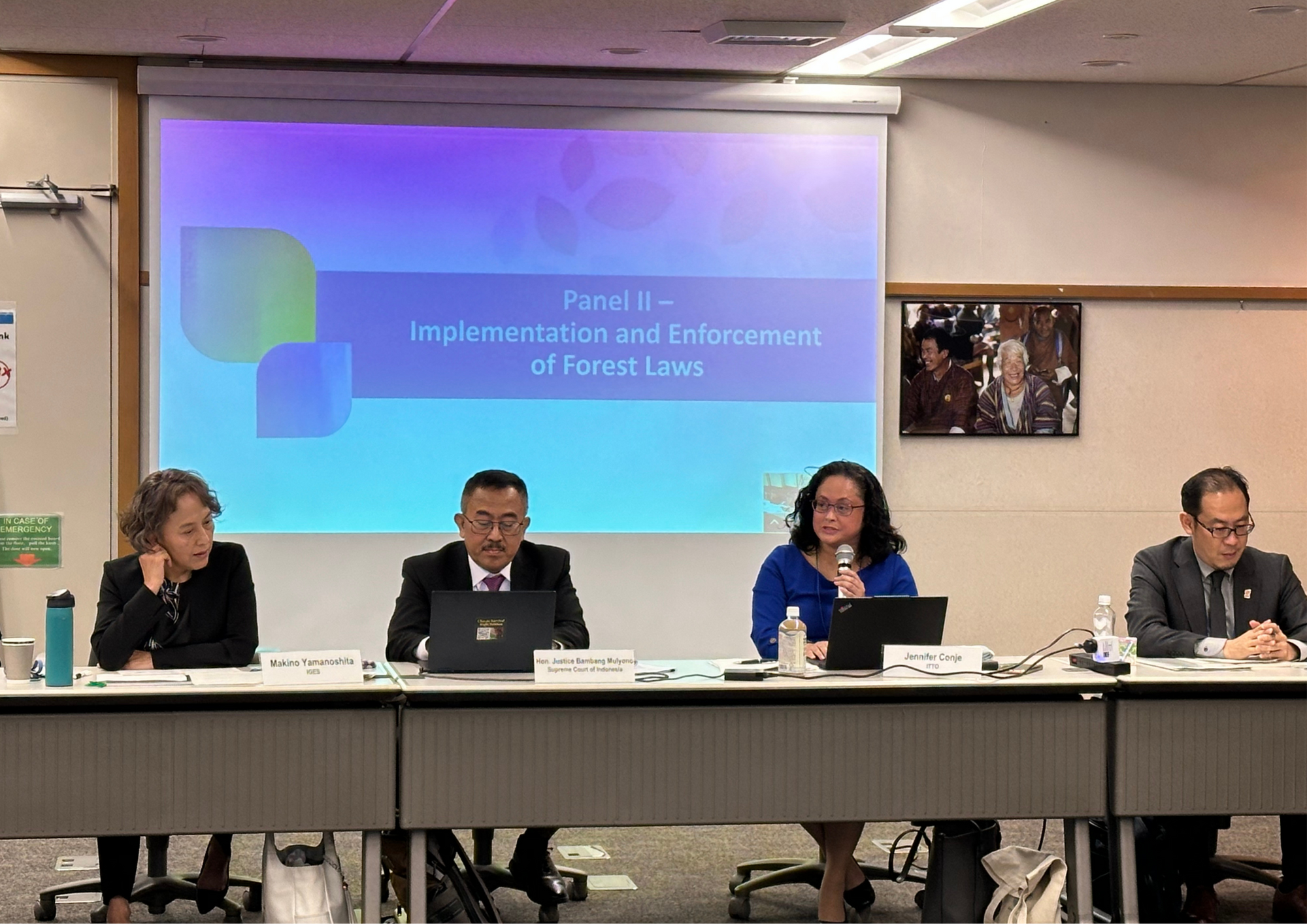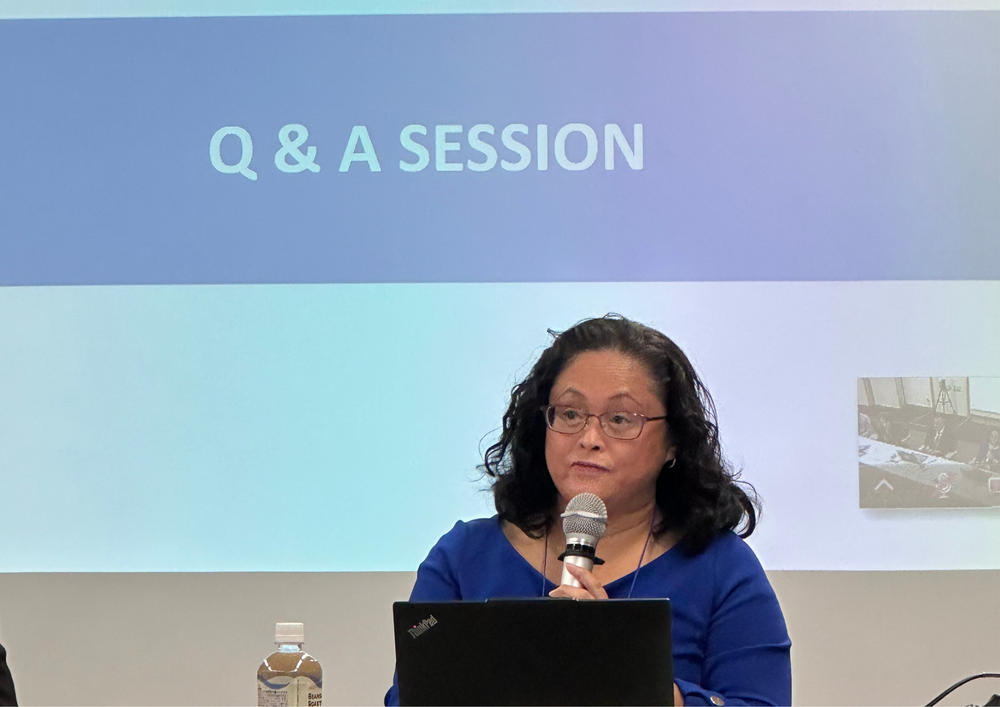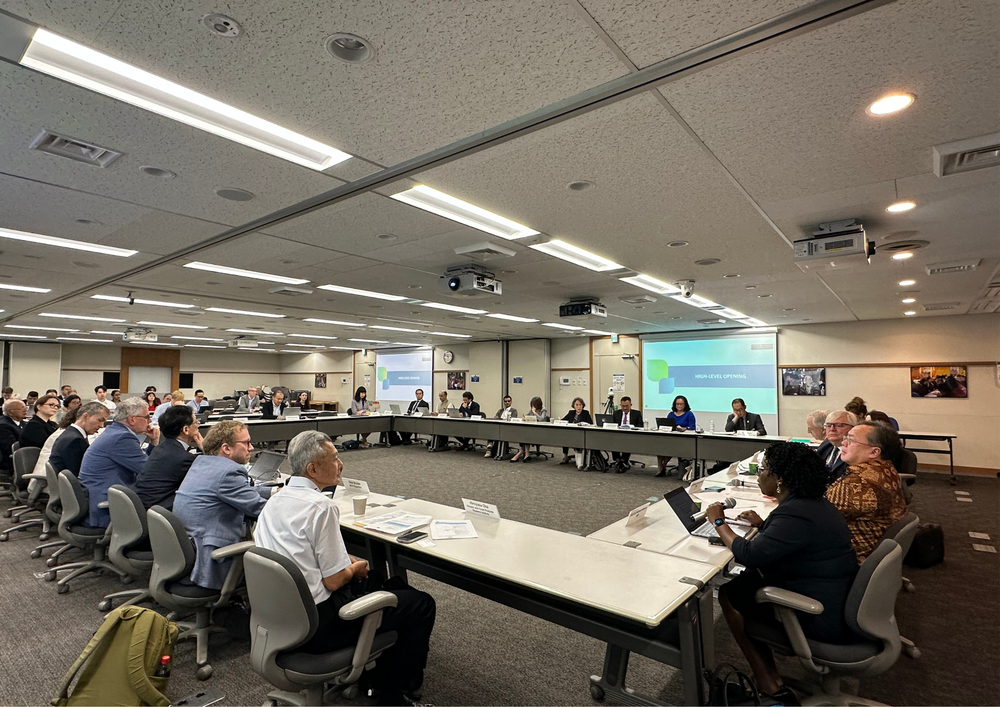ITTO highlights forest law opportunities at MoFAI roundtable in Japan
06 October 2025, Tokyo

During a panel discussion held at the Model Forest Act Initiative (MoFAI)-Japan Roundtable, ITTO Director of Forest Management emphasized challenges and opportunities in implementing and enforcing forest laws. © Ramon Carrillo/ITTO
Tokyo, 25 September 2025 – At the MoFAI Roundtable and Consultations for Asia Pacific on forest legislation and governance, Jennifer Conje, ITTO’s Director of Forest Management, emphasized both the persistent challenges and emerging opportunities in implementing and enforcing forest laws.
The roundtable - composed of both legal and forest experts - shared views and insights to inform the design of a model legislative text that can be applied and tailored to country-specific contexts and needs as part of the Model Forest Act (MoFAI) Initiative of the Asian Development Bank (ADB).
Drawing on lessons learned from ITTO’s nearly four decades of experience guiding its Members in developing and implementing forest laws and regulations, Ms Conje noted that, while many countries have “beautifully crafted” forest laws, “their intended aims are not achieved due to weak implementation and enforcement.”
To illustrate these challenges, Ms Conje drew on the example of an ITTO-supported project in Indonesia, where a new law instituting requirements to promote the legality of timber from community forests encountered serious obstacles in practice. She explained that one of the key difficulties was the lack of awareness and information among local actors.
“Too often laws are developed at the ministerial or national legislative level and not enough resources and effort are put into dissemination, and educating all the actors critical in the law’s effective implementation,” she said. “For example, “community forest owners and enterprises were not engaged in enough consultative dialogue to secure their support before the regulation was put in place.”

Not factoring in realistic timeframes or a phased approach to build capacities at all levels and with different implementers is another indicator of poor policy design, Ms Conje noted, adding that these challenges and failures are not specific to Indonesia, but are common to many countries implementing new laws.
A further complication lay in weak coordination across institutions.
“For anyone who has worked in large bureaucracies, ensuring coordination and coherence between different agencies, and building trust and effective working relationships, is not an insignificant task,” she said. Ms. Conje emphasized that in recent years ITTO has observed an uptick in frequent reorganization of ministries and agencies structures in many countries. “It is critically important for a law’s implementation to have an enabling environment that involves some degree of constancy, in order to truly prove if the law is effective or ineffective.”
Ms Conje also highlighted systemic issues such as limited training in environmental law, lack of political will, inadequate cross-sectoral consultations resulting in competing or conflicting laws, and risks of corruption.
While all of these factors can undermine even the strongest legal frameworks, Ms Conje emphasized how rapid technological innovation was already assisting in forest monitoring and enforcement, pointing to blockchain, improved traceability systems, advanced satellite monitoring, drones, and smartphone applications that enable citizens to contribute to data collection and forest monitoring.

“All these developments are game changers,” she said.
Ms Conje also highlighted the role of accountability frameworks in driving progress, citing new sustainability reporting requirements by financial institutions and demand-side regulations in consumer markets. “Sustainability and legality credentials are no longer just reputational assets; they are necessities for regulatory compliance,” she remarked, underlining how such measures are creating incentives for producer countries to strengthen their conservation laws and enforcement systems.
In this context, the Model Forest Act Initiative can make an important contribution to improved forest governance, she said: “ITTO is very happy to see ADB’s MoFAI initiative in supporting capacity building and modernizing environmental law, which is dearly needed.”.
The knowledge-sharing roundtable and consultations were organized by the Asian Development Bank Law and Policy Reform Program and the Asian Development Bank Institute, in partnership with the Global Judicial Institute on the Environment, the IUCN World Commission on Environmental Law, and the United Nations Environment Programme.